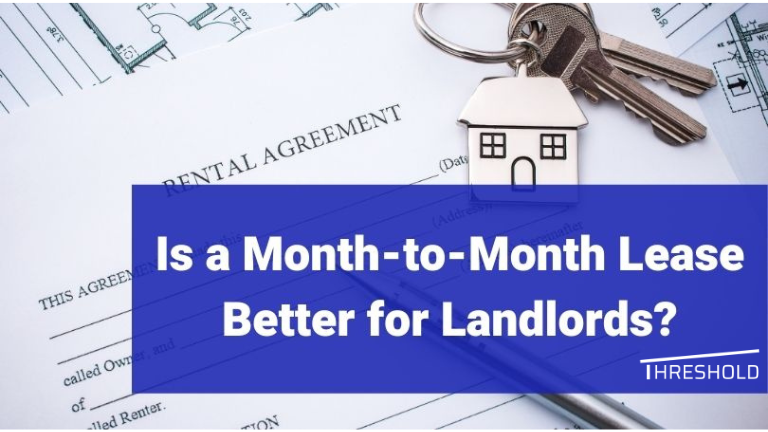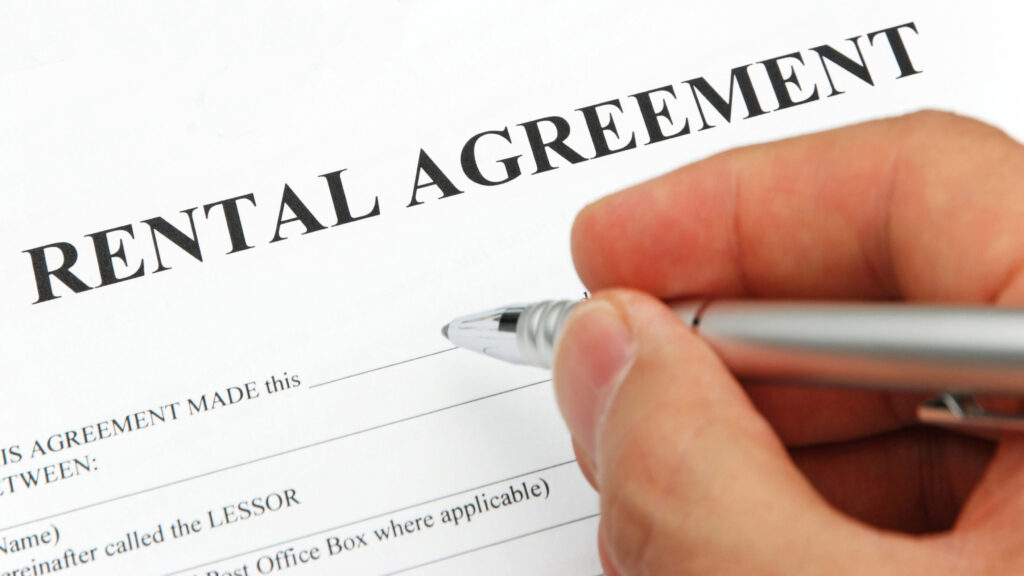
Table of contents
Is a Month-to-Month Lease Better for Landlords?
When it comes to renting, both landlords and tenants frequently consider how to structure their contract. Selecting between a month-to-month lease and a fixed-term lease is a significant decision. While month-to-month leases provide flexibility, fixed-term leases provide stability.
Let’s examine month-to-month leases, including their mechanics, advantages, and disadvantages for landlords and tenants.
A Landlord’s Guide: How to Get Tenants to Renew Leases in Miami
Fixed-Term vs. Short-Term Monthly Leases: What is the Difference?
In essence, there are two main options when renting a place: month-to-month leases and fixed-term leases.
Fixed-term leases entail signing an agreement for a predetermined amount of time, such as a year or six months. Knowing precisely how long a renter is committed to a lease provides stability that benefits the landlord as well as the tenant.
On the other hand, month-to-month leases do not commit to a specific time; rather, they renew each month. This implies that a month’s notice is all it takes for both the landlord and the tenant to decide to terminate the lease.

When deciding between the two kinds of leases, most people take into account how much flexibility they need and how long they want to commit to remaining in a location.
Ultimately, personal tastes and situations will determine whether to choose a fixed-term or month-to-month lease. Month-to-month leases give tenants and landlords the freedom to modify their agreement to meet their changing needs, while fixed-term leases provide stability.
How does a Month-to-Month Rental Lease Work?
Tenants on a month-to-month lease have the option to renew their lease each month or to move out at any time. These leases provide greater freedom than fixed-term leases, which bind tenants for a predetermined amount of time. Tenants normally have to give their landlord notice—30 days in advance—if they intend to move out.
Similarly, landlords may terminate a lease by providing a notice period of one month to the tenants. Both sides will have time to develop plans in this fashion. Such leases are beneficial to landlords, as they give them the flexibility to handle their rentals more skillfully. It enables them to swiftly adjust rental terms or deal with changing circumstances.
Month-to-month leases are an excellent option for those who are unsure of how long they will stay in a location or for landlords who wish to have the flexibility to make rapid changes. It provides greater alternatives for all parties involved, much like rolling monthly rentals.
What is a Fixed Term Lease?
A fixed-term lease is similar to an agreement for a predetermined period of time. It occurs when you consent to renting a space, like a condo, for a predetermined amount of time, like a six-month period or a year. You and the landlord cannot simply alter the terms, such as the rent amount, during this time.
It gives you stability because you’re aware of how long you’ll remain. Moreover, unless both you and your landlord agree differently, you are committed to staying for that amount of time.

Pros and Cons of a Month-to-Month Lease Tenancy
Although month-to-month leases provide flexibility, they also have a unique mix of benefits and drawbacks. Let’s examine five benefits and five drawbacks of month-to-month leases in more detail.
Advantages of a Month-to-Month Lease
- Flexibility: Both tenants and landlords benefit from month-to-month contracts. Landlords are able to change rental prices or terminate the lease swiftly, and tenants can leave with as little as one month’s notice.
- Reduced Vacancy Risk: Shorter leases allow landlords to avoid having vacant premises for extended periods of time. This arrangement draws renters who are more comfortable with shorter leases, guaranteeing landlords a consistent income.
- Adaptability: Landlords can readily accommodate changes in circumstances or the remodelling of the property. When necessary, this flexibility enables more seamless transitions.
- Short-Term Commitment: Renters value being able to avoid long-term obligations by leasing on a month-to-month basis. Those with erratic lives or unclear plans for the future may particularly benefit from this flexibility.
- Increased Negotiating Power: With month-to-month leases, tenants have more clout when negotiating rental conditions or asking for upkeep of the property. They have more negotiating leverage because they can depart with little notice.
Disadvantages of a Month-to-Month Lease Tenancy Agreement
- Possible Uncertainty: Month-to-month agreements could give landlords cause for concern over steady rental income. Tenants may terminate their lease early, leaving landlords with little time to find new tenants.
- Restricted Rent Increases: With month-to-month arrangements, landlords could find it difficult to impose sizable rent increases in contrast to fixed-term leases. Their capacity to raise rents is further limited by state-specific rent adjustment restrictions.
- Constant Marketing: Because of the shorter lease durations, landlords might need to advertise the property constantly in order to draw in new renters. This continuous work may result in increased turnover costs and might be time-consuming.
- Danger of Unexpected Vacancies: Landlords may have unplanned vacancies due to tenants’ sudden decision to quit. This might cause cash flow problems and force landlords to move swiftly to recruit new tenants.
In summary, making educated selections while thinking about this kind of lease arrangement can be facilitated by both parties being aware of these benefits and drawbacks.
Bottomline: Should Tenants Sign a Monthly Lease?
If your lifestyle’s requirements and circumstances are centered on flexibility, then a month-to-month lease would be a great idea. You might end up enjoying your residence and staying there indefinitely, as the lease automatically renews each month. On the downside, your landlord may at any moment give you a month’s notice to vacate. Rent prices also fluctuate as per the landlord’s demands.
For More Information about Renting and Lease Renewals in Miami, FLorida, feel free to navigate these State Landlord-Tenant Laws For Florida – by LandlordStudio.
Frequently Asked Questions
What are the disadvantages of month-to-month lease?
For landlords, the major drawback of month-to-month lease is the economic strain of suddenly vacating tenants. For tenants, a sudden change in rules or rent by the landlord may be unpleasant.
Is a month-to-month lease a contract?
A lease is legally binding and can be used to resolve any disputes that may arise between the tenant and landlord.
Is month-to-month more expensive than fixed term?
Yes, it is more expensive as the landlord has the power to change rental rates to suit his turnover.




